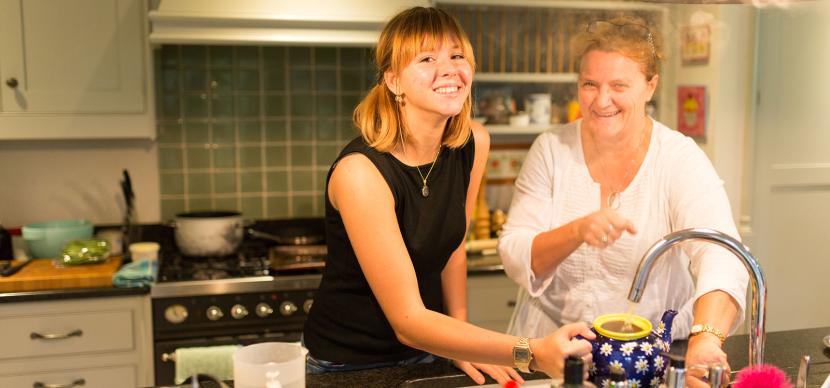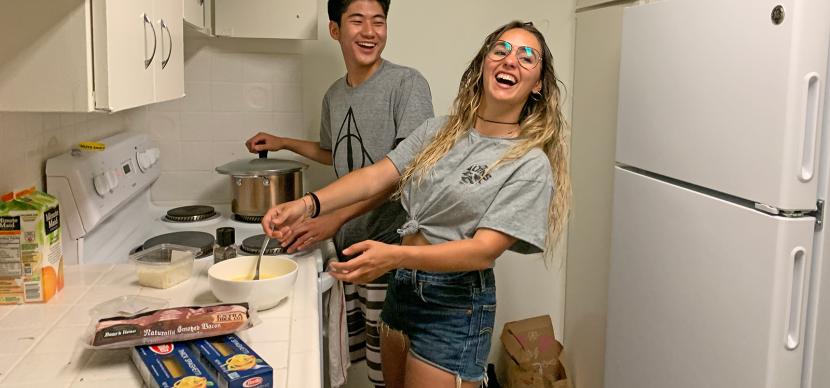Fun Facts: Meal Time Habits

All humans eat to survive. They also eat to express appreciation, for a sense of belonging, as part of family customs, and for self-realization. For example, someone who is not hungry may eat a piece of cake that has been baked in his or her honor.
We love food. A basic staple of life has never been more appreciated than food. Sleeping and breathing just don't lend themselves well to various interpretations. A traveler once said, "They can spit on my feet, make me sleep in the sty or insult my religion, but if the eats are good, I could care less."

People eat according to learned behaviors regarding etiquette, meal and snack patterns, acceptable foods, food combinations, and portion sizes. Let’s look at some interesting facts on these behaviors.
- Indians eat with their hands because they believe that food is more than “just protein, carbs and fat" … it nourishes the mind, intellect and spirit. Food has to be sensual and mindful. Eating with your hands gives you a connection with the food. It’s the least violent way to eat. BUT the hands must be washed, wiped or even rubbed with sand, as desert Arabs do. But the foremost rule is that only the right hand may be employed for eating. The left hand is never used for that. It is considered unclean. You may have to actually sit on your left hand to make sure it doesn't join you while dining.
- In China, Japan and India, finishing every last grain of rice you are served is proof that you enjoyed the meal. While in Cambodia, Jordan, Egypt and the Philippines, it is more polite to leave a little food on your plate. An empty plate could insult your hosts, implying that they did not serve you enough.
- In Saudi Arabia, diners burp after eating to compliment the cook. In Hong Kong and Japan, loudly slurping your noodles demonstrates your enjoyment of the food; literally, that it is so delicious you cannot even wait until it cools off.
- In Germany, you should never take any food in your hands. It’s always eaten with a knife and fork. On the flip side, never use your knife to cut the boiled potatoes that are commonly served. It’s insulting to the hostess. Like saying that they are not tender enough to eat. Use the side of your fork, instead.
- In the United States, people go a little bit overboard on the utensils they are using. Fork, knife and spoon at dinner, or if it's formal, then two forks -- a salad fork and a "regular one" -- and two spoons -- a soup spoon and a "regular" spoon, bringing them up to 5 utensils. They can go even higher if they eat seafood or dessert. Another interesting fact is you should only eat with your fork in your right hand. Your left hand stays out of sight in your lap unless you're cutting something. If you need to cut something, you switch the fork to your left, pick up the knife in your right.
- The 'American style' of eating with the fork in the right hand is considered bad manners in Austria. There is an anecdote from WWI which states that American spies were found out because of their manners at the table: they could have passed off as Europeans but their table manners gave them away.
- Japanese people have some unique set of rules when it comes to eating. An honored guest sits at the center of the table furthest from the door and begins eating first. If it comes to chopsticks you should never point with them and never pierce food with them. Rest them on the chopstick rest when breaking for drink or chat. It is good etiquette to try a bit of everything. Conversation is subdued or at least not encouraged.
- For Turkish people, meals are a social affair. Conversations are animated and loud. The head of the family or honored guest is served first and it is good etiquette to insist the most senior is served first instead of you. Asking for more food is considered a compliment. Good to know that if taken to a restaurant, Turkish dining etiquette has strict rules that the one who extended the invitation must pay.
- In the Middle East, you don't need to worry about making a mess. Everybody does that. Also, if you are finished, leave food on your plate otherwise it will be filled immediately. Some sort of magic maybe? :)
Do you have any interesting or unique habits when it comes to have a meal? Share it with us on our Facebook page!
 617 275-5955
617 275-5955




